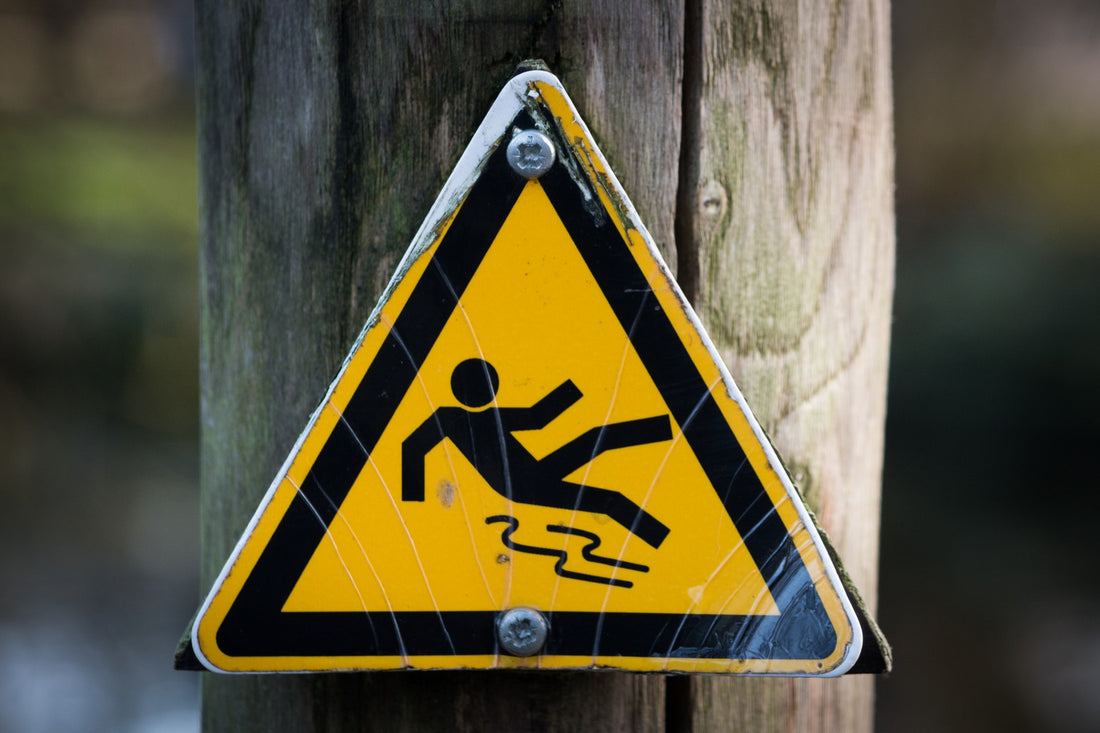
Fall Prevention: How to Reduce Your Risks Through Diet, Supplements and Lifestyle
Share
Accidental falls and slips are the #2 cause of unintentional injury deaths in the world, warns the World Health Organization. The problem is especially problematic for those ages 60 and older, with seniors making up most of the reported falls each year. As we enter into the fall season, we want to highlight fall prevention not only due to the shared name of the season and the health concern, but also because the changing weather creates more slip-and-fall risks for all of us (e.g., rain, mud, slippery sidewalks, and as winter approaches, ice sheets and black ice). Today, let’s explore the basics of fall prevention, plus how to reduce your risks through diet, supplements, and lifestyle changes.
What Increases Your Risks of Falls?
 While falls are traditionally thought of as something that only affects old or frail individuals, there are many risk factors that affect people of all ages. Common risk factors that make you more prone to falling and experiencing fall-related injuries include:
While falls are traditionally thought of as something that only affects old or frail individuals, there are many risk factors that affect people of all ages. Common risk factors that make you more prone to falling and experiencing fall-related injuries include:
- Poor balance
- Chronic health conditions, such as diabetes, that affect coordination and balance
- Weak muscles
- Fragile bones
- Problems with your walking gait
- Blood pressure health concerns (some people experience falling blood pressure when they sit up or stand up too quickly, which can cause unexpected falls)
- Wardrobe choices, such as high heels, backless shoes, or pants that are too long
- Medications, especially those that cause drowsiness, changes in blood pressure, dizziness, headaches, etc.
Fall Prevention This Fall Season: How to reduce Your Risks of Falls
1. Talk to Your Doctor
 As you can see from the aforementioned list of risks, there are many unexpected side effects to medications, chronic health conditions, disease, etc., that contribute to your risks of falling.
As you can see from the aforementioned list of risks, there are many unexpected side effects to medications, chronic health conditions, disease, etc., that contribute to your risks of falling.
Fall prevention thus starts with talking to a medical professional to explore what hidden risks are buried in your current medications and lifestyle.
“Certain eye and ear disorders may increase your risk of falls,” explains the Mayo Clinic. “Be prepared to discuss your health conditions and how comfortable you are when you walk — for example, do you feel any dizziness, joint pain, shortness of breath, or numbness in your feet and legs when you walk? Your doctor may evaluate your muscle strength, balance and walking style (gait) as well.”
The clinic also recommends:
- Listing all prescription medications you’re on
- Listing all over-the-counter medications or supplements you take
- Discussing any past issues you’ve had with dizziness, falling, poor balance, etc.
- Discussing any past falls or injuries you’ve experienced
2. Evaluate Your Fall Prevention Options Around Your Home
Most falls occur at home. Do a quick survey of your home and look for fall prevention opportunities in and around your house:
- Can you increase lighting in fall-prone areas, such as dark corners, stairways, and corners?
- Can you add railings or furniture to help you navigate stairs, slippery floors, etc.?
- Can you add grab bars and other stability options in problem areas like in your tub and next to your toilet?
- Can you remove fall-triggering culprits like loose rugs or power cords?
3. Exercise More Frequently
 Those who are worried about falling tend to opt for a more sedentary lifestyle, often out of a fear that an active life exposes them to more fall risks.
Those who are worried about falling tend to opt for a more sedentary lifestyle, often out of a fear that an active life exposes them to more fall risks.
Yet the opposite is true.
The more exercise you get, the better your balance, muscle strength, bone strength, and coordination. This in turn reduces your risks of falling.
“Exercises that focus on balance and strength training can reduce the risk of falling,” reports John Hopkins Medicine. Ideal examples for fall prevention include walking, sit-to-stand exercises, and exercises that improve your balance.
4. Take Bone-Strengthening Supplements
One of the most serious concerns for falls is bone fractures and similar injuries. Guard against these problems by taking supplements that help strengthen your bones:
- Calcium
- Magnesium
- Vitamin D
- Boron
- Vitamin K
There is also a growing body of research linking your bone health with your immune system’s health and balance. Consider adding immune-supporting supplements to your vitamin and mineral stack. BioPro-Plus 500 is a unique dietary supplement that is clinically proven to increase CD4 cell counts. CD4 cells (T-cells) are white blood cells that play a major role in your body’s own natural immune system response. Without adequate CD4 cells, preexisting disease may run rampant in your body and you are even more vulnerable to new infections.
References:
- https://www.who.int/news-room/fact-sheets/detail/falls
- https://www.aafp.org/afp/2000/0401/p2159.html
- https://www.mayoclinic.org/healthy-lifestyle/healthy-aging/in-depth/fall-prevention/art-20047358
- https://www.hopkinsmedicine.org/health/wellness-and-prevention/fall-prevention-exercises
- https://www.frontiersin.org/articles/10.3389/fimmu.2018.00657/full
